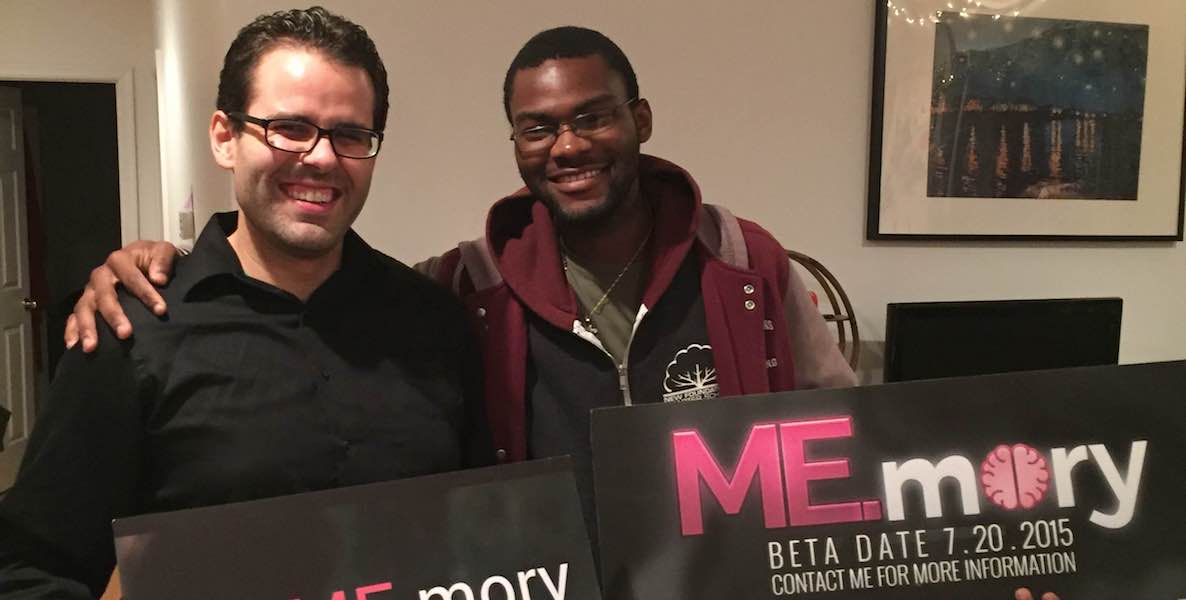Say you suffer an accident that requires a two week hospital stay. Even with solid insurance, you’ll likely still be on the hook for a $10,000 bill, due in about three months. That’s a ludicrous sum. But it’s a position that millions of people find themselves in every year.
That’s because hospitals, unlike virtually any other business you deal with in life, don’t offer useful payment plans. Often that means that patients simply don’t pay their bills, which wreaks havoc on their credit scores: Millions of Americans have unpaid hospital debt, which stays on a credit report for the better part of a decade. And the damage of that pales in comparison to another side effect of unpaid hospital bills.
“So many people right now are embarrassed to seek treatment at hospitals because they already have outstanding bills there,” says Raheem Ghouse, vice president at local startup Finpay, which is trying to disrupt the hospital bill paying system. Further, he says, hospitals will often reject patients with outstanding bills, leading to chronically ill patients seeking help at other hospitals. “But what happens when you go to Presbyterian and you can’t get back in, and then you go to Temple and you can’t get back in? Pretty soon, you can’t get treatment from any other hospital in the city, and you have to start looking outside the area for treatment.”
![]() Hospitals have always written off patient bills as not worth collecting. And Ghose says currently 19 percent of patients make good on their outstanding hospital bills. Finpay estimates it can bring that number up to 74 percent, with an idea that is so ludicrously obvious it’s shocking that no one has done it before. For a starting six-figure payment from the hospital, Finpay will tutor its patients in medical financial literacy—including how to read their hospital bill—and put them on a payment plan. The goal is to make payments possible to hospital-goers without ludicrous interest rates, which will make it easier and more likely that patients will pay their bills—a boon to both hospitals and patients.
Hospitals have always written off patient bills as not worth collecting. And Ghose says currently 19 percent of patients make good on their outstanding hospital bills. Finpay estimates it can bring that number up to 74 percent, with an idea that is so ludicrously obvious it’s shocking that no one has done it before. For a starting six-figure payment from the hospital, Finpay will tutor its patients in medical financial literacy—including how to read their hospital bill—and put them on a payment plan. The goal is to make payments possible to hospital-goers without ludicrous interest rates, which will make it easier and more likely that patients will pay their bills—a boon to both hospitals and patients.
It’s a bit of a complicated thing. It doesn’t pop at you. Ghouse puts it simply: “We’re trying to help patients meet their obligations without getting hurt.”
Ghouse, a Drexel grad from India who was Finpay’s third employee, is the perfect pitchman for the healthcare startup. He found it after a run at SquareKnot, a so-called Github for making things, when he was despairing of finding another job in Philly that would satisfy his desire to be part of a tech startup—which might have meant leaving the city he has come to love. Ghouse is a well known and nattily-dressed fixture at tech and political events around town; during the primaries last year, he hosted a debate watch party attended by dozens of people. He was taken, he says, by the key to any great startup: A great idea.
When patients make smaller, month-to-month payments on their hospital bills, it keeps them in good standing at the hospital at which they receive care, so that, if they need further care, they can be readmitted without fear of being rejected for an unpaid $15,000 tab.
“No one’s figured out how to help people out and make money off of doing this before,” he says. “I mean, what the hell?”
Finpay was the brainchild of Chris Wolfington, a longtime payments executive for 30 years who previously ran a company that managed payments for casinos. Ghouse says he was in the process of developing an online gaming platform when he noticed an opportunity in what the tech veteran called a “highly dysfunctional and immature patient financial management market.”
The company launched in 2015 and is not yet profitable, but they currently have nearly a dozen Philly-area investors including Bipin Shah and Ned Moore. Finpay—born in Philly, but currently based in King of Prussia—makes its money when healthcare providers pay for its services, not by taking any percentage of the patient’s bill. They currently have their three first clients, Pentec Health, Continuum Health and Recovery Centers of America. Ghouse says the company is engaged in talks with several additional Philly hospitals.
Ghouse has a suspicion as to why no one has tried this before: Since payments from insurance companies make up a disproportionate amount of their revenue streams, it hasn’t made bottom-line sense for healthcare providers to focus on streamlining the process for patients. Most major hospitals have vast financial and billing wings, but 95 percent of their workforce is committed to the complex business of working with insurers; Ghouse says hospitals often assume that the patient-paid portion of the bill is just going to be a wash.
It sounds cynical, but it may simply be the most practical way to go about it: A 2011 study showed that, in that year, Americans were on the hook for more than $41 billion in unpaid medical bills. The problem of unpaid patient bills, really, is a costly nuisance for hospitals; but it’s a massively unjust, obtrusive side-effect of capitalism run amok for patients.
Ghose says currently 19 percent of patients make good on their outstanding hospital bills. Finpay estimates it can bring that number up to 74 percent, with an idea that is so ludicrously obvious it’s shocking that no one has done it before. Finpay will tutor patients in medical financial literacy—including how to read their hospital bill—and put them on a payment plan.
With Finpay, the system no longer need be so imbalanced. When patients make smaller, month-to-month payments on their hospital bills, it keeps them in good standing at the hospital at which they receive care, so that, if they need further care, they can be readmitted without fear of being rejected for an unpaid $15,000 tab. Even if the patient ultimately can’t pay the total of the bill over the time afforded by FinPay’s payment plan, they’re still more likely to make a few payments to the hospital, at the very least to forestall a credit hit. That’s a much better result for the hospital than not recouping any of the patient portion of the bill.
Recovery Centers of America is a good example of how this works. Rehab facilities, according to Ghouse, operate under the assumption that they’re not going to make all of their money back. Recovering addicts tend not to be the most financially secure folks, and they often have a hell of a lot more to deal with than most medical patients. “I mean, a rehab stay can cost $30,000, and that’s money a lot of these people don’t have,” he notes.
Recovery Centers of America signed on to Finpay as a benefit to both patients and the rehab facilities: If patients are better able to afford their bills, the rehab facility can recoup more of its losses, so they can take on more risk from incoming patients. That’s why Sean Hanrahan, director of customer contact at Recovery Centers, calls FinPay a “giant leap forward” in terms of improving the patient experience.
“The cost of recovery has always been a serious consideration,” he says. “We have seen people defer treatment due to cost of care. We have seen people having difficulty meeting their insurance deductibles. The financial component of recovery simply cannot be ignored. We saw that FinPay’s solution would give all our prospective patients options that they did not have before.”
Correction: An earlier version of this story misstated the name of Finpay’s investors. They are Bipin Shah and Ned Moore.
Photo header: sasint/Pixabay





